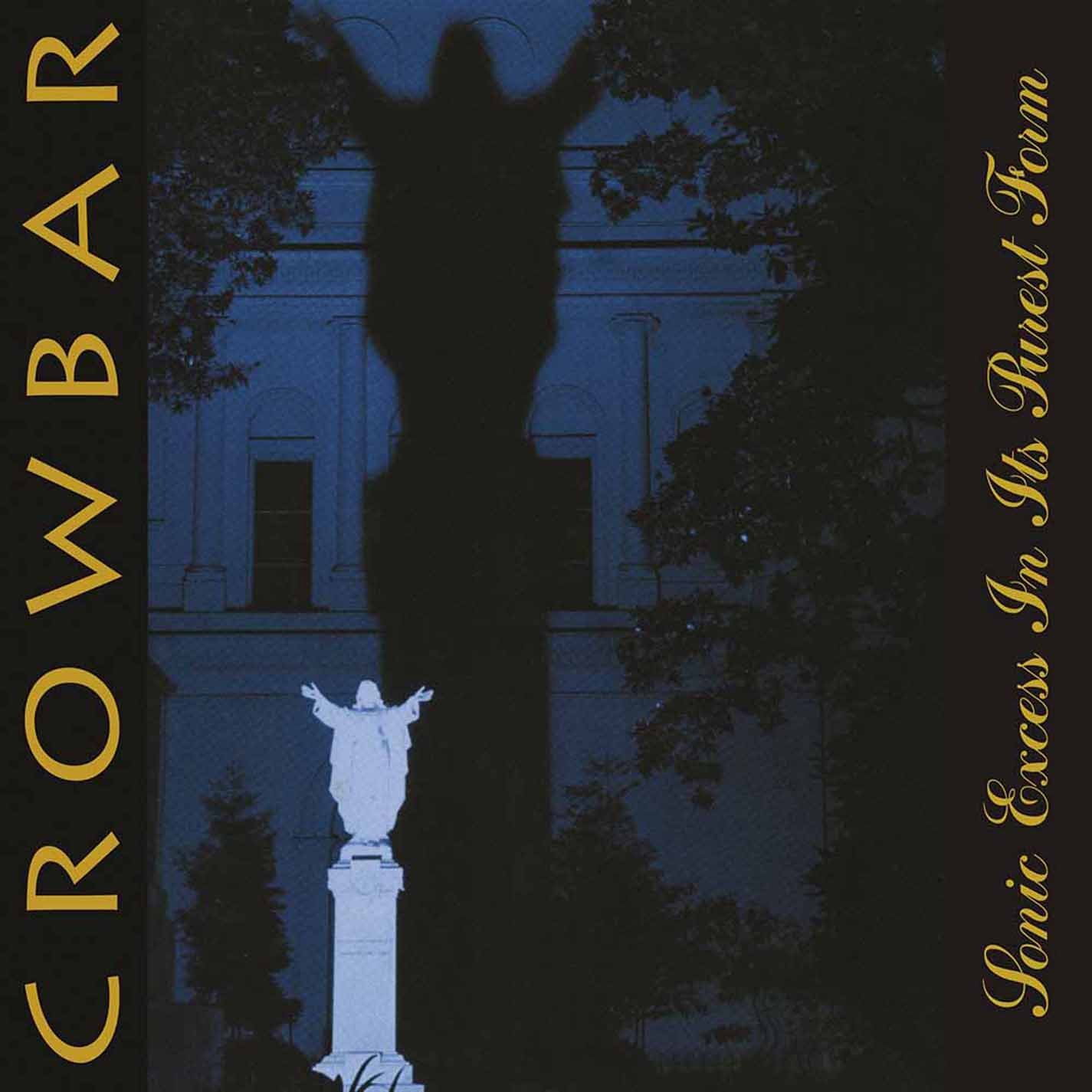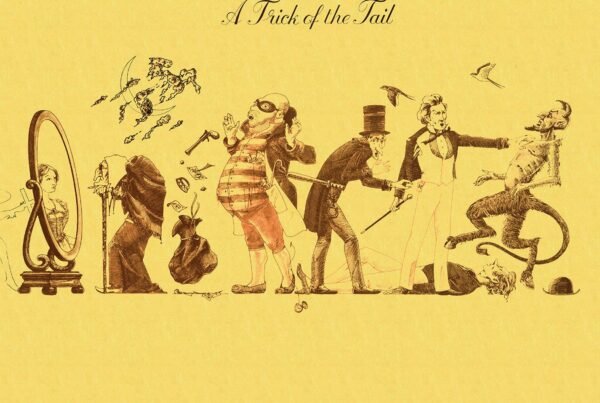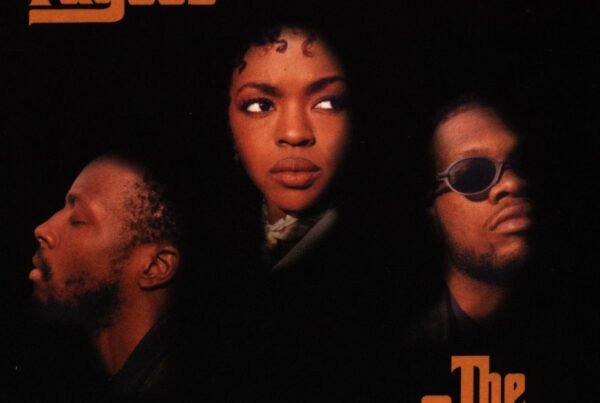There have been few bands to continuously shape sludge metal as a genre from its swampy New Orleans origins to its current international spread the way Crowbar did. A legendary act in their own right, they have churned out precise carvings of the style’s dichotomous nature – doom metal on one side, hardcore punk on the other – over 30 years and eleven records by now. Kirk Windstein and co. have always been reliably solid even while going through the obvious highs and lows any band invariably faces; of those highs, there’s arguably none that shines brighter than 2001’s Sonic Excess In Its Purest form.
19 years removed from its release, said album still holds up as a classic, both of its parent genre and the discography of the band that brought it to life. To celebrate this milestone, I’ve assembled a team consisting of staff writers Ashley, Hanna, and Tyler – these three will guide you through their thoughts on Crowbar‘s masterpiece below.
Hanna Ott
About this time last year, I was working on a research project that aimed to identify which musical element has the greatest impact on the perceived heaviness of metal riffs. The first stage of this was analysing existing heavy riffs to find out what similarities they shared, but of course I didn’t want my own bias in the research, so I asked some local metal enthusiasts for help. One of them was a local musician, Dan, who plays in a number of different metal acts, and whose tastes within metal are hugely diverse. When I asked him to pick a riff he deemed to be an exemplar of heaviness, he chose the main riff from Crowbar’s “Counting Daze”, with his reasoning being: ‘Just listen to it and tell me that’s not heavy!’
I listened to this riff a lot, analysing its melodic contour, harmony, rhythm, tempo, and tone, but I never got around to actually listening to its album, Sonic Excess In Its Purest Form, until I decided, once again, to take the opportunity to familiarise myself with it for A Scene In Retrospect. There is some serious shit on this album, boy howdy. It’s just damn good heavy music.
What I admire so much about Crowbar is their ability to write extremely heavy riffs, whilst still remaining very sensitive to the subtleties of tone and – more prominetly – harmony. This is evident from Sonic Excess’s opening song, “The Lasting Dose”; it’s undeniably doomy and very morose, with harmony much more pleasant than I imagined having only heard “Counting Daze”, and tones that I can only describe as being thick as balls. I’m a huge sucker for early death metal harmony, mainly (I think) because it’s so far removed from what we perceive as ‘brutal’ today. Listen to any Death, any Carcass, and you’ll find the harmony they chose much less dissonant that many modern death metal bands. That’s where Crowbar diverge from the norm. In 2001, they were writing music that sounds so old school in its approach to harmony and tone, yet so fresh, even now, in its execution.
“Awakening” serves as a particularly good example of this. It morphs effortlessly from death to thrash to doom metal, with one defining part tying it all together – the sometimes delicate, sometimes surprising, sometimes simply heavy use of harmony. No matter the style of riff, Crowbar understand what harmony it needs, whether that be rich and colourful or straightforward and meaty. Even the use of wah on “Awakening”’s penultimate riff, an effect that I’m sure all of us have heard used too many times in an overly excessive way, is somehow executed tastefully. And hot damn, the final riff. So many of the riffs in this song only happen once, and it seems almost a shame, because if there’s one thing Crowbar know even better than harmony, it’s how to write a fucking riff. At the same time, I’m glad not all of them repeat – it makes them feel like more of a delicacy.
Every song on this album should get a mention in this article, because I feel they are all really amazing in their own way. One question I caught myself asking, over and over, was ‘how can something so simple be so heavy?’ I don’t have the answer. The riffs are awesome, so many different moods evoked, each one a delight to behold, and the vocals are consistently in that sweet spot between pain and fury – but Crowbar have more up their sleeve. “In Times Of Sorrow” is proof that they can do clean and tender just as well as hefty riffing – not that I ever had reason to doubt that. The tones on this track are warm, sweet, and so sad with longing, very appropriate to its name.
My partner has a particular dislike for songs in compound time signatures, where the beat is divided into three rather than two. I get that – songs like that tend to feel a bit ballady (think “Nothing Else Matters”, “Tennessee Whiskey”, and “Kiss From A Rose”). I’m not a purist by any means, but I don’t tend to like ballads, so I get where he’s coming from. “Suffering Brings Wisdom” is a stellar example of how to execute a sludge song in a time signature like this. I also have a particular liking for it as it’s one of the few tracks on Sonic Excess that celebrates, rather than merely accepts, the bass guitar as an integral part of the band’s sound. The tone here is lovely, too – that really nice filter of overdrive that’s somehow crystal-clear, that adds dirt without compromising clarity. If I had to pick a track from Sonic Excess that aligns most with my personal definition of heaviness, this would be it. Don’t let my ramblings about ballads fool you – this in not a ballad. This is a death waltz.
So, the big question for me, listening to this album, was: is the main riff from “Counting Daze” the heaviest riff on Sonic Excess? I would argue not – to me, it could well be the intro to “Repulsive In Its Splendid Beauty”, or anything from the latter half of “Suffering Brings Wisdom”, or the main riff/progression from “Thru The Ashes”, but at the end of the day, who cares? The album’s so full of fantastic heavy riffs it feels absolutely pointless to pit them against each other. Crack open a beer, crank the volume, sit back, and let the riffs work their magic.
Tyler Kollinok
My early years of listening to metal were filled with typical bands like Metallica, Slayer, and Pantera. Pretty generic, I know, but after my initial introductions, I thoroughly enjoyed finding influential artists who weren’t quite as popular. It became a type of collection for me, sort of like trading cards. I wanted to have an expansive knowledge of bands that were both new and classic, and also could make me less of a ‘poser’ (I was a teenager, what do you expect?). Most of my musical discoveries were results of attending concerts and summer festivals. In 2010, I attended Ozzfest and saw the band Kingdom of Sorrow. I absolutely loved how heavy they were. I knew the band was a supergroup of sorts, and when I looked up their line-up, I saw familiar names. I already knew Jamey Jasta from Hatebreed, but they were my first introduction to Kirk Windstein.
Revisiting Crowbar’s Sonic Excess In Its Purest Form reminded me just how criminally underrated this band really is. Kirk Windstein is a riff machine, and this entire record has some of the most crushing material I’ve ever heard. I’m pretty sure my first Crowbar song was “To Build A Mountain”, and that introduction is so strong and in-your-face. Parts of the song have such a robust hardcore element to it that lends itself to more slam dancing than typical metal headbanging. It grabbed my attention instantly, and the entire song was perfect for my suburban teenage angst. In all honesty, Sonic Excess In Its Purest Form was probably the first sludge metal record I ever listened to, and it still holds up to this day.
I think it is worth noting that Kirk Windstein’s vocals on this album are incredibly raw and intense, but I’ve also always found his approach interesting. While his singing is certainly harsh and sounds more like a growl at times, he manages to still sing on pitch with an edge that is fitting to the sludge style. Imagine this record with completely clean singing – in my opinion, that would absolutely destroy the impact of it. Obviously, that’s simply the style of music that we’re expecting here, but I think “Through the Ashes” is a perfect example of my viewpoint. Most of the track has Windstein singing with his pitched growls over a barrage of heavy riffs, but then the bridge section is faster and thrashy and he sounds more like Max Cavalera from Sepultura and Soulfly. It would be tricky to imagine any other type of singing fitting the hefty guitars and pounding drums than the perfectly shouted vocals from Windstein.
I truly don’t understand why Sonic Excess In Its Purest Form isn’t more prominent in the history of metal. The record is going to be twenty years old soon, but it still feels fresh and absolutely massive. No offense to the classic bands out there, but Crowbar deserve way more praise and admiration than some other artists. They helped to cross over the sheer heaviness of doom metal and the aggression of hardcore into something unique and memorable. If it was up to me, this album would be considered one of the best metal albums of all time. If you haven’t heard it yet, I promise your’re missing out on an important piece of sludge history.
Ashley Jacob
The formula is relatively simple: Good hearty sludge, with no strings attached. One must also add that the advantage of restricting solely to just one musical mission statement, is that you can give that creative mission your entire undivided focus.
This was a given for the purist engineers of Crowbar as they were already in possession of six albums’ worth of practice. 2001’s Sonic Excess In Its Purest Form is a fitting title in a lot of ways. The album showcases the workings of a band who had already been in the game long enough to cement their matrimony with this sound, a type of heavy of their own making, and they also expressed zero intentions of looking in any other direction.
Never let it be said that sludge, laden with sludge that has also been layered with extra lashings of sludge, can’t also contain some substantial hits of emotion! Yes, the album is prone to the fleeting melodic moment, as was often the great tradition of bands like Crowbar, but even in the heaviest residuals of the record, of which there are ample helpings, there is a wealth of depth, substance, and some bold reaches into the realms of sombre.
This is projected with notable intent by vocalist and Crowbar mastermind, Kirk Windstein, who has been the band’s one and only constant since its origin back in 1990. Though consistent in delivery, Windstein ensures that when the feelings of discontent surface, listeners feel it too. There was, and still is, some real power in that voice.
Alas, the real magic comes in the music, the riffs and the melodies, all which arrive in assuredly meaty bouts. The composition and tempo is one thing definitely worth celebrating in this regard, but tantamount in praise are the tones themselves. This folks, is where the album really shines. Being something of an ignoramus in the department of sound engineering, I’d describe those guitar sounds as sonically adept. They are rugged, rustic, and as evocative of the word ‘sludge’ as one can imagine. Yet at the same time, they are focussed, precision-tuned, and endlessly impressive, both in crushing riff form and throughout the high-end melodies.
This means that, for all the noisy, brazen chug found in Sonic Excess In Its Purest Form, there is no margin for error, no place for a duff note to be found. Everything you hear is honed to a fault, and embodies craftsmanship at an intuitive level. You can bet your bottom dollar that this album is a labour of love from a band fully immersed in the noisy joys of their own sound. Sludge is an acquired taste, yes, but Crowbar prove, as much in this album as anywhere else, that it is not a sub genre you can walk into with a sleepy mind and idle hands.
A final shout out goes to the impeccable skills of Tony Costanza, who, during Crowbar’s extensive timeline, drummed for this album alone, and toured with the band for a handful of years after. Rest in peace, good sir!
What are your thoughts on/experiences with Sonic Excess In Its Purest Form? Are you a fan of Crowbar, and if so, what’s your favorite album of theirs? Do you have any records you’d like to recommend for inclusion in A Scene In Retrospect? Leave it all in the comments if you feel like sharing!






